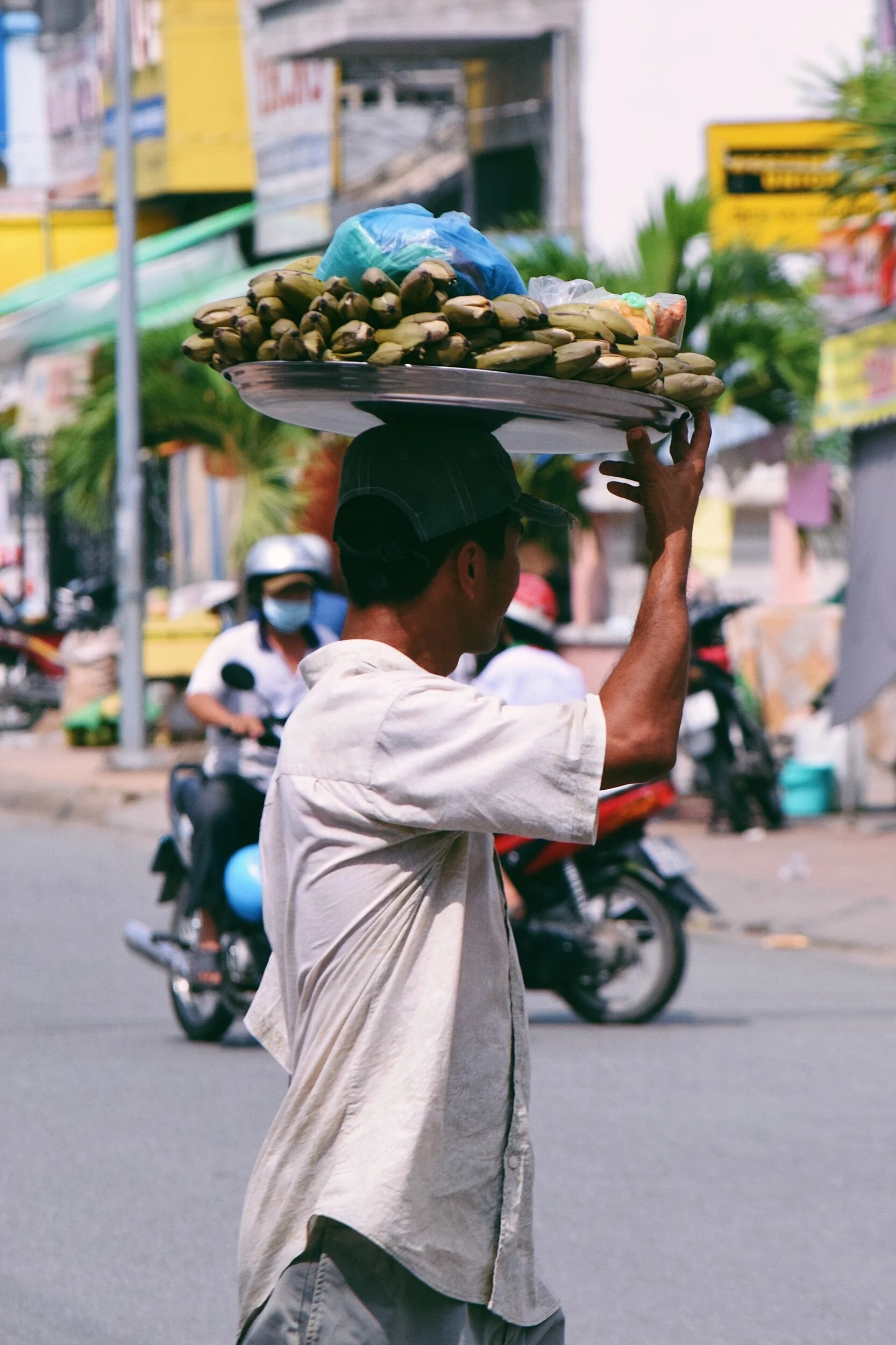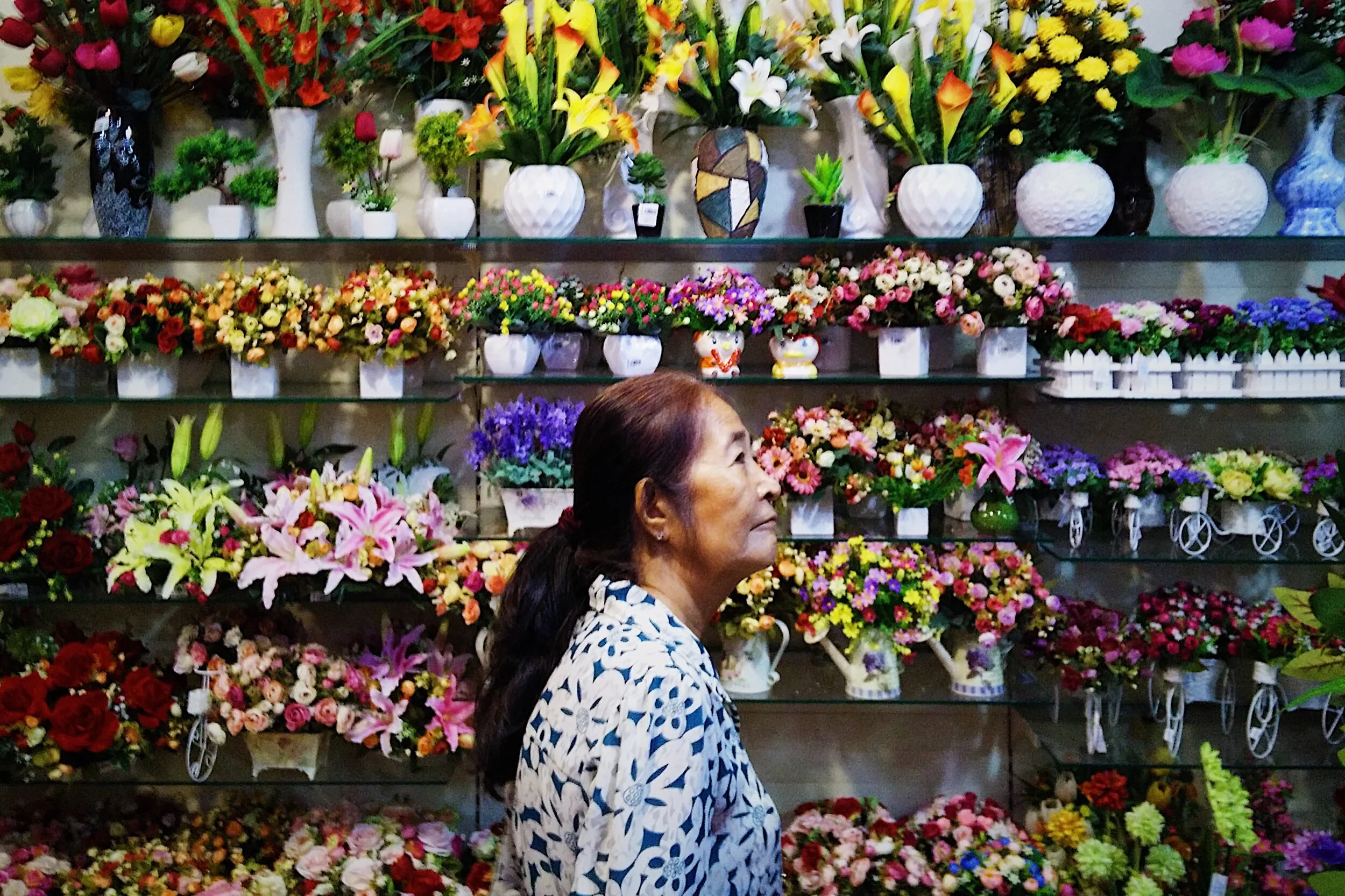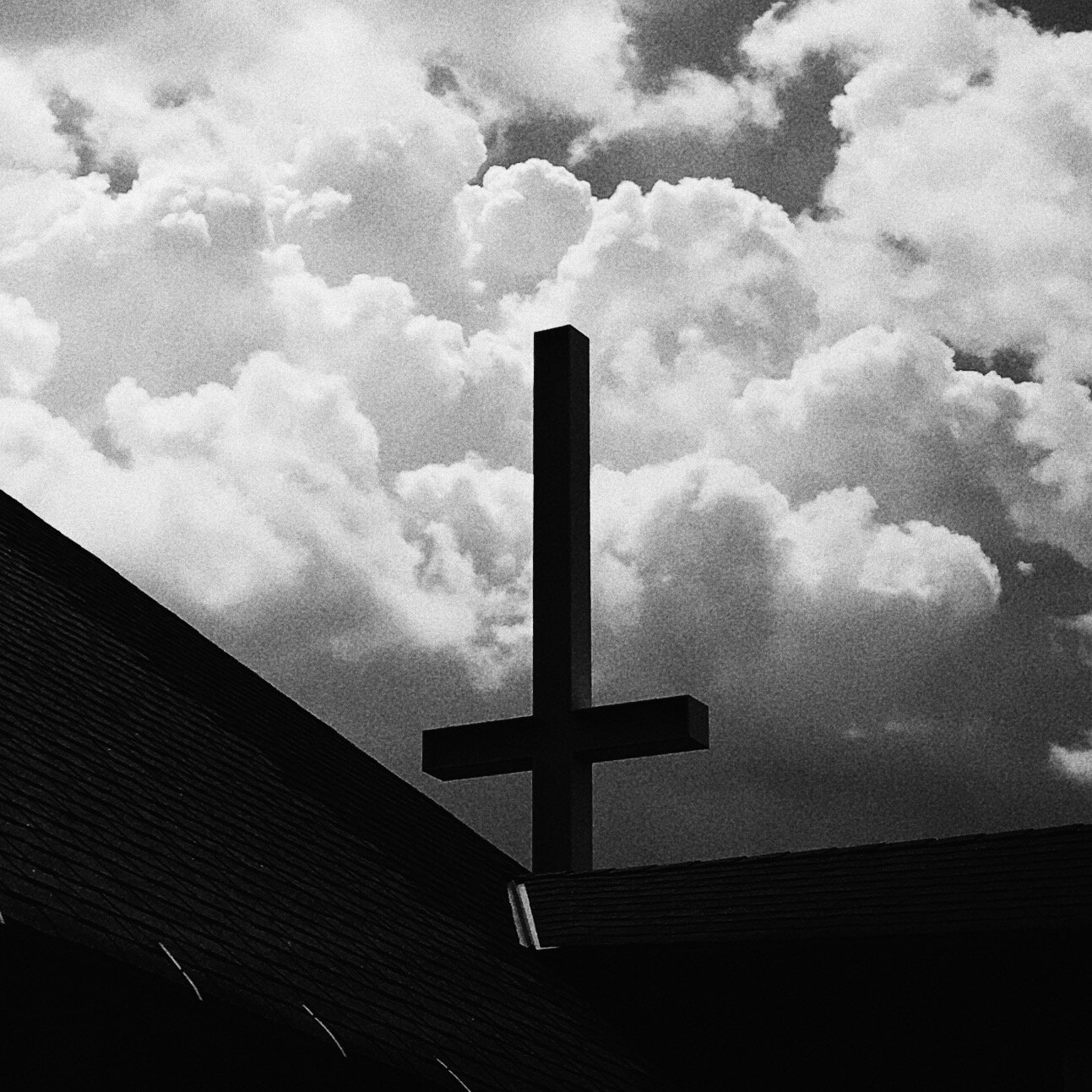


Tôi nhớ Việtnam
“The little I remember becomes even more diminished by being recollected in English.”
—Joseph Brodsky, Less Than One
It was 1954, the year a line was crossed in the sand of my country, Vietnam. The Geneva Conference was called to quell civil hostilities between my people and extricate the French troops from the north. It was, at best, an attempt to forestall the momentum of the Viet Minh, yet the circumstances that precipitated war could not be stopped. Resentment, especially under the constant threat of oppression, was too deep a feeling to abandon—bloodshed had its way upon my land, like it had for generations, like it had for all the world who also felt this pain. Peace fell silent, drowned out by the sounds of conflict.
By then, my mother had just been born, not a month early into the budding midst of summer, and my father still also a child, was only nine—their young lives ahead of them already mired in this deranged truth. What do you tell a child when their father is called upon to war, especially one embroiled against their own brothers and sisters? I cannot imagine what soft words mothers had to sing their Vietnamese children to sleep. I am left speechless by my own language, my mother tongue.
It is 2014, fifty years after the passing of the Gulf of Tonkin Resolution that cemented my country into history. I am once again in Vietnam, but only for the second time in my entire life; the first was when I was five, and I haven’t any recollection of that at all. I was told stories by my mother, that it would be the only time that I would come into contact with my grandmother before she passed. To know the person whose photo has been enshrined on my mother’s alter all my life would have meant to learn a great deal about myself and from where my heritage was descends.
There were VHS tapes of me, a plumpish little preschooler with a towel waving behind my back playing superhero swordsman around my grandmother’s side, yet even those were misplaced in my severed upbringing. I could still vaguely frame a still image of myself in that tape however, my small stature at the ready, and fiercely guarding whatever looked like was going to devour my grandmother’s legs. It was the only moment in those tapes that mattered. Now, as a twenty-something-year-old adult, the only memories I have of this place are contained in these photos, taken almost without aim; I’ve traded that toy sword for this camera that I sling around my chest like a rapper flexing his Jesus neckpiece. The equivalent here is the big-bellied jade Buddha necklace, which too many Vietnamese trailer-trash wife-beater-wearing men take as a necessary fashion statement.
Nevertheless, I regard the camera as a spiritual calling, the weight and power of it so nuanced as to mystify the locals here. The camera itself is not a thing that looks to be intimidating, but one may have an apprehensiveness at the sight of your face warped into the reflection of the camera lens. Turning glances lock onto me as I lock onto them with the same wonderment. They look as if they question my being here, not only because I have the face of a Vietnamese native, but because of my guilty curiosity with this camera. I know how unsettling it is to have the barrel of something brandished at your face, becoming an unwanted target of voyeuristic interest. National Geographic and the like come to mind, and how photographers like myself work from a certain perspective towards “exotic” locales; even my own Homeland seems a foreign and alien place to me, and to even contend with this notion is thought-churning enough. I try to not dwell upon it.
Being ethnically attached to Vietnam, and to the historical luggage it brings with it, I am pained to say that I might pity my own Homeland whenever I look upon the state of disrepair of southern Viet Nam; Sài Gòn, Cần Thơ, Huế, the burial sites of my ancestors, whom I will never truly meet situated just outside the slummish house where my cousins and aunties reside. Because I was mostly brought up in a Western-centric worldview, I have been conditioned to feel a certain sense of first-world sympathy toward other “developing” countries like mine. I’ve seen starving children or lepers on an early-morning informercial, and it tugged on my heart strings. I’ve heard about catastrophic wars in the news or in the papers and winced imagining what it’s like to live in that reality every day. Yet I was worlds away, on another hemisphere, and the realities of that starving child was never able to reach me like it does now. I despise the word, “pity,” for English’s lack of nuance couldn’t allow me to enunciate how I truly felt about the condition of my people were left in after the war. They deserved better than to be forsaken on sieged rooftops and left grasping at their own escape to freedom. But I wouldn’t give myself the right to feel this way toward Vietnam, especially when I myself loathed being pitied, and especially when the locals here dwelled with an expressive graciousness, and a certain pride in the meagerness of their lives. That graciousness was only matched by their genuine contentedness of the way things were, in disrepair or not.
Here in Cần Thơ, homes are roofed with rusted metal shutters that bang like gunfire in the heavy August rain. The inner roads are like twisted boughs and the people populating the streets are languid in their Mickey Mouse pajamas and open-toed footwear. Even stray dogs feel familiar in a way; they are always ruffled in dirt and slightly emaciated. Today, I’ve come into my older cousin’s home, a house conjoined by only two studio-sized spaces located in a back alley by a busy throughway. The perpetual scent of a dampened garden and the seemingly endless assault of mosquitoes rise from it. Some of the columns in my cousin’s neighborhood still exist with recesses from bullets. (I wonder if I probe my fingers into the wound, would I discover fragments of the war still lying in wait for me?) I spend a considerable deal absorbing as much of the landscape here as I can; the incessant honks and horns of mopeds and early generations of Toyota vans become a constant in the day while on street corners, vendors and carts of scaly pitayas, boulder-sized jackfruits, bright mangos line the curb just outside my cousin’s doorstep. Toward the other end of the alley is a hallway of homes, many of them hidden by clothes hung out to dry. Pop music, the fragrance of stews, and shouts of laughter and conversation leak out from the cracked walls and open windows as I trek about the back street. Every now and again, a motorist skirts past me and, for a brief moment, cuts right through the sounds and airs of those past the barriers with its odor of gas and sputtering of the motor.
Not too far from my family’s home is the murky water of this seaside city. There, children cannonball off docks into shallow depths and swim alongside the boats all the same, while fishermen are settled along the coast armed with rods and nets and coolers, ready to catch that evening’s meal. Nearby the ports, a cluster of tents shade a market square, with people coming and going on feet and on mopeds. Clouds of grill smoke and puddles of melted ice greet me upon entering. I already see a collection of small squid slowly undulating on a bed of shaved ice, and a fish butcher vigorously swinging his blade, making quick work of dispatching items for customers. I meander for some time, not intent on buying anything, but to observe this world, listening in and studying overheard phrases and names, things that I’ve, until just recently, only ever heard my family ever say, now from the voices of strangers. We eventually decide to dine on Bullet Mackerels freshly snatched from nearby shores, in addition to these Babylonian Snails that we purchased from a well-known snail shop. The day is slow and begins to wind down. My cousin, whom I am consciously meeting for the first time, is considerately laboring for tonight’s spread: cá ngừ nướng, ốc hương xào, gỏi cuốn, with clouds of steaming white rice—an honest peasant’s meal. Later on, my cousin’s family and extended family all come in tow; what was first one cousin is suddenly four more, nieces and nephews included, ever bigger, ever more foreign. I am practically a stranger, adrift in the fray of Vietnamese accents and diphthongs in another world, in another life—wishing I’d been born here, had went to school here, met my love and lived a ordinary life here, selling fruits, and breathing in the air at night when there is nothing but a misty expanse to be alone in.
I take a bite of the Babylonian snail, after having dipped it in a chili-lemongrass oil mixture, and let the spicy briny texture tear apart in my mouth. I chase it with a heaping flake of fish and its burnt crust of skin done in by my cousin; then follow up with a clump of rice seasoned with a splash of that oil mixture. In the background, there is a TV playing YouTube videos of Vietnamese comedy; everyone is sitting in a circle on my cousin’s jade-tiled floors, chortling at the stage play of Chí Tài, and I can only smile along as I take another portion of snails. To call this feeling “Home” would be too uncomplicated; it is something more, something deeper, something complex that needs to be found or discovered—excavated from the rubble of history. And though I understand the laughs and conversations tossed between the air, I fixate my eyes on the dead mackerels laid before me with them staring back with charred white eyes, slowly being picked apart. The night turns slow again and I fall fast asleep with a full and warm stomach.
I sometimes take my life for granted when I think of Vietnam and more particularly, my mother’s hardships, having to flee and drift through multiple refugee camps. I was once told of the last time she would call Vietnam her home before deciding to risk traveling overseas in marauded waters. It was a certain number of months after the war’s end, and the political upheaval affected many of the south Vietnamese supporters and sympathizers still remaining here. She was, by circumstance, jailed and charged for no reason other than that she was recognized as having been on the losing side. Luckily, when poverty is abound and men are opportunists for any sign of fortune, (especially with how the last moments of the conflict generally left the southern half in a state of collapse) greed can make anyone turn the other way. My grandmother, who had managed to remain free at the time of my mother’s detention, mustered up all of the valuable jewelry our family had saved and stored away. I was told it was not much, a rather meagre collection of gold necklaces and jade-stones no bigger than the palm of one’s hand. The bribe was enough, and my mother was just simply let go. It was also at this time that she was able to escape on a fishing boat and make for the Philippines. She, and refugees like her who had nothing left to lose, took to perilous seas, risking encounters with pirates and uncertain tides. I was even told that some on the boat hid suicide pills beneath their tongues or between their teeth for the entire duration of the journey there, but they were never needed.
There are other stories that were told to me about the family I’ve never met. I heard through my mother how an uncle of mine, who tragically died at a young age in a motor accident, was well-known for his affinity for music, especially folk Vietnamese verse, cải lương, my maternal grandfather, recognized for his craft of rural healing, thuốc cây cỏ, remedying his local community through his use of wild herbs. I would imagine my family, natives of this land, dearly intimate with nature somehow, commingling with the soil beneath their feet, their world a green innocence that selflessly gives. Before my coming-back, I would dream of Vietnam in terms of remembrance for our culture, history, turmoil, deeds, everything about it was practically a recollection, like a memory returning again just to fleet away as quickly as it came.
It is a country in which my roots are inherently entangled and my language calls home, where I am a foreigner and yet still not. I have come upon Vietnam again like an emigrant, unsure of where their place or sense of belonging is, expatriated from the jumble of all things American. I have gotten as close to knowing Vietnamese as I possibly can, considering that I have spent my life entirely in America, but sometimes, admittedly like many other Americans, I fail at its words. Nevertheless, it is a history that seems almost impossible to reclaim, almost as if it never existed. In Welsh, there is a particular word that is akin to this ghostly feeling: Hiraeth—a word that roughly translates as a homesickness, an earnest longing or desire, or a sense of irreparable regret for a home that never was. An entire context of emotions implied by a single rolling of the tongue—another shortcoming of the English language, perhaps; how this connection necessitates an expounding to be vaguely explained, yet is able to be encapsulated in a noun so flowery and saccharine. In Vietnamese, we use the word, “nhớ,” which in its typical usage means “to remember.” I would remember the way my mother prepared bánh xèo for family gatherings, the sounds of the rice batter meeting hot oil stoked over an open fire, a crackling like static, the dish’s presence of turmeric tinging the batter to a quality that likened it to the sun—tôi nhớ Việt Nam. I would remember the perplexities of learning Vietnamese at a summer Sunday school; how letters on the blackboard resembled, only in appearance, letters that I grew up with but through utterance, the language was nothing alike, somehow more subtle with tenderness. But “nhớ” also relates to a wistful missing, nostalgic and pensive and longing for another, resembling the word hiraeth—soft and gentle on the tongue, meant only to be expressed with the most contemplative volumes—tôi nhớ Việt Nam. I would conjure up images of an overgrown countryside, all the while reminded of the fact in history that those same abundant lands were torched and poisoned and fashioned into battlefields by the tides of politics. I remember it, even though I’ve never lived it. I’ve made my memories into, if anything, something more concrete and actual, but ultimately still leaving my soul and my insides wanting. Nhớ has grown into something more now; my family abroad, living and deceased and however distant; quiet mornings spent lazing on a hammock over a cold glass of black coffee beading into a puddle of perspired dew; a dream upon the Mekong Delta, figments of experiences that could’ve been as certain and real as the sobering plane flight back to America. Tôi nhớ Việt Nam.